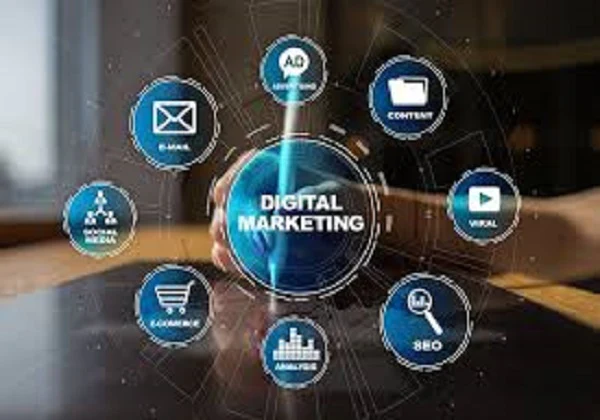What is Internet Marketing?








What is Internet Marketing?
Mastering Internet Marketing: A Comprehensive Guide for Success
In an increasingly digital world, internet marketing has become a vital component for businesses seeking to reach their target audience effectively. Whether you’re a startup or an established brand, understanding the fundamentals of internet marketing can significantly impact your success. In this blog, we’ll explore what internet marketing is, its key components, and strategies to help you thrive in the online marketplace.
What is Internet Marketing?
Internet marketing, also known as online marketing or digital marketing, refers to the process of promoting products or services through the internet. It encompasses various strategies and techniques aimed at connecting with potential customers, building brand awareness, and driving sales.
Key Components of Internet Marketing
- Search Engine Optimization (SEO):
- SEO involves optimizing your website to rank higher in search engine results, increasing organic traffic. Effective keyword research, on-page optimization, and backlinking are essential strategies in SEO.
- Content Marketing:
- Creating valuable, relevant content is crucial for engaging your audience and establishing your brand as an authority. Blogs, videos, infographics, and eBooks are effective content formats to share insights and attract visitors.
- Social Media Marketing:
- Leveraging platforms like Facebook, Instagram, Twitter, and LinkedIn helps you connect with your audience on a personal level. Regular posts, ads, and engagement with followers can enhance brand loyalty.
- Email Marketing:
- Email marketing involves sending targeted messages to your audience to promote products, share news, or offer valuable content. Building an email list and personalizing communications can drive engagement and conversions.
- Pay-Per-Click Advertising (PPC):
- PPC advertising allows businesses to display ads on search engines and social media platforms. You pay only when someone clicks on your ad, making it a cost-effective way to drive traffic and generate leads.
- Affiliate Marketing:
- This performance-based marketing strategy involves partnering with affiliates to promote your products. Affiliates earn a commission for driving sales, expanding your reach and sales potential.
- Analytics and Data Tracking:
- Utilizing analytics tools is vital for measuring the effectiveness of your internet marketing efforts. Tracking metrics like website traffic, conversion rates, and customer behavior helps refine strategies and improve ROI.
Strategies for Successful Internet Marketing
- Define Your Goals:
- Clearly outline what you want to achieve with your internet marketing efforts, whether it’s increasing brand awareness, generating leads, or boosting sales.
- Know Your Audience:
- Understand your target audience’s demographics, preferences, and behaviors. Create detailed buyer personas to tailor your marketing strategies and messaging.
- Create High-Quality Content:
- Focus on producing valuable content that addresses the needs and interests of your audience. High-quality content builds trust and encourages shares, enhancing your reach.
- Optimize for SEO:
- Conduct keyword research and optimize your website for search engines. Ensure your content is relevant and valuable, and build backlinks to improve your site’s authority.
- Engage on Social Media:
- Choose the right social media platforms based on where your audience spends their time. Create a content calendar to maintain a consistent posting schedule and interact with followers.
- Implement Email Campaigns:
- Build an email list by offering valuable content or incentives. Segment your audience for targeted campaigns and personalize your emails to improve open and click-through rates.
- Monitor and Analyze Performance:
- Regularly review your internet marketing performance using analytics tools. Assess what’s working and what needs adjustment, and be ready to pivot your strategy as needed.
- Stay Updated with Trends:
- The digital landscape is constantly evolving. Stay informed about the latest trends, tools, and best practices to remain competitive and adapt to changes.
Conclusion
Internet marketing is an essential component of any modern business strategy. By understanding its key components and implementing effective strategies, you can enhance your online presence, engage with your audience, and drive meaningful results. Embrace the opportunities internet marketing offers and position your business for long-term success in the digital landscape.
Hashtags for Your Internet Marketing Efforts
To boost your visibility and connect with a broader audience, consider using these hashtags:
- #InternetMarketing
- #DigitalMarketing
- #SEO
- #ContentMarketing
- #SocialMediaMarketing
- #EmailMarketing
- #PPC
- #MarketingStrategy
- #AffiliateMarketing
- #OnlineBusiness
Feel free to share your thoughts, experiences, or questions about internet marketing in the comments below! Let’s connect and grow together!

